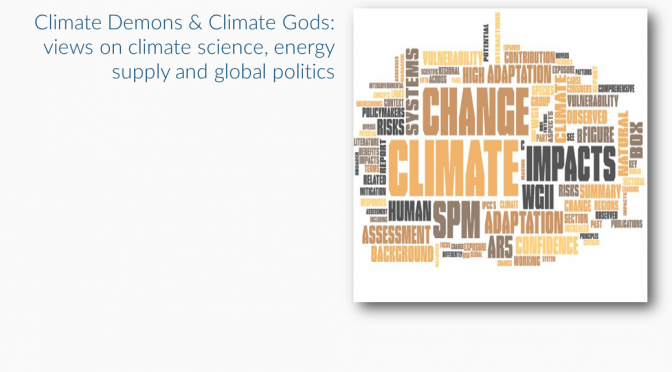
For over a quarter of a century, climate science has been widely debated, with a range of views expressed on the role that carbon dioxide (CO2) plays in climate change. Here, two prominent scientists present their views not only on climate science, but also on energy supply and global politics: one at the Vatican and the other at a EURACOAL-hosted dinner debate in the European Parliament.
Climate Gods
Climate science advisor to the Pope and the German Chancellor, Prof. Hans Joachim (John) Schellnhuber, argues that the Earth is like a patient suffering from a fever. If this fever can be managed below a temperature rise of 2°C – his so-called “planetary guardrail” – then humanity might survive.
For Prof. Schellnhuber, the science is clear: an overwhelming body of evidence shows that global warming is driven by greenhouse-gas emissions which are the result of burning fossil fuels, creating intolerable risks. Any delay to mitigation measures may jeopardise climate stability – Prof. Schellnhuber’s “tipping points” of unstable jet streams, major methane releases, erratic El Niño events, disintegrating ice sheets and social disruption.
On 18 June 2015 at the Vatican, with a mix of science and politics, he explained his thinking not only on extreme climate change, but also on the gross inequity of global wealth distribution; wealth that was largely created by the “carbon powers”, beginning with the UK and Europe, followed by the US and more recently by China. This 20-minute amateur video of his presentation offers a concise summary of his position. Background papers were published by the Potsdam Institute for Climate Impact Research (PIK) and the Holy See Press Office, based on a paper by Prof. Schellnhuber published in 2014 by the Pontifical Academy of Sciences.
Climate Demons
Greenpeace founder and environmental scientist, Dr. Patrick Moore, denies claims that CO2 is a pollutant and is sceptical that it will cause much warming of the climate. He notes that far from being a harmful greenhouse gas, CO2 is necessary for life on Earth. However, the oceans remove CO2 from the atmosphere by natural absorption; then crustaceans (shellfish) convert it to carbonate minerals, ultimately forming sedimentary rocks such as limestone, chalk and marble in which the CO2 is locked away. He warns that atmospheric CO2 concentrations had fallen over time to dangerously low levels, threatening plant life and hence all life.
Dr. Moore believes that rising CO2 levels are good for life – his “planetary guardrail” being the 180 ppm below which plants die, a level that might have been reached if man had not burnt fossil fuels. On 2 February 2016, Dr. Moore presented his thesis at a dinner debate in the European Parliament, Strasbourg, in front of MEPs, industry representatives and an IPCC scientist who brought balance to the debate. EURACOAL has published a full report of the dinner debate which was held under the Chatham House rule. This 40-minute video is of an earlier, similar presentation given on 14 October 2015 at the Institution of Mechanical Engineers in London.
Climate Socialism
Prof. Schellnhuber has a unique understanding of complex, nonlinear systems and chaos theory; his understanding goes far beyond that of ordinary laypeople and experts in particular disciplines. He says that climate change, caused by the tiny CO2 molecule, can trigger sudden, irreversible and large-scale disruptions in the Earth systems, e.g. a sea-level rise of seven metres if the Greenland ice sheet were to melt. He cites a World Bank report that he himself authored on why a 4°C warmer world has to be avoided and so justifies a “master plan” for the planet – namely, his “Great Transformation”.
In the context of climate policy, scientists and moral philosophers, including Prof. Schellnhuber, refer to the climate as “our common good”. He calls for new property rights that give ownership of the atmosphere to humankind through carbon pricing and questions if it is ethical to exploit fossil fuel reserves as private goods for the benefit of a small, privileged group of mankind, generating extreme wealth for a few.

